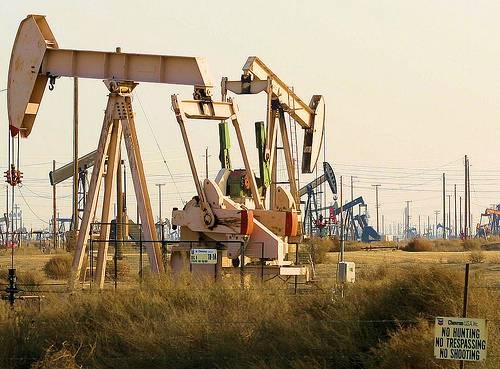
Coal, oil and natural gas are not considered renewable fuels, simply because of the time it takes to replenish such resources. Coal, oil and gas are all formed in much the same way, from decaying matter, coupled with heat and pressure. Though the science behind this is hardly in doubt, there are some who do wonder if there are ways to produce these resources in a quicker manner--ways that include not only natural methods, but also man-made.
Though they are all different types of fossil fuels in form, coal, oil and natural gas are essentially created in much the same way. Animals and plants die and begin to decay. Gradually, and over a period of many years, sand and other matter pushes these animals deeper into the Earth. The pressure and heat from those processes helps to create these three major fossil fuels.
At one time, oil was considered a nuisance find. It would spring forth from underground and totally ruin an area. Today, it is recognized as a powerful storage device for energy--energy that was first used millions of years ago. The use of oil first came into widespread use with the invention of the gasoline engine. Coal was used much earlier, mainly as a source of heat. Natural gas came into widespread use during the 20th century, especially with modern appliances and furnaces.
Many of the fossil fuels currently being harvested were formed during the Carboniferous age (see Resources). This period took place between 300 and 350 million years ago. Though some believe fossil fuels are the remains of dinosaurs, this is not the case; the dinosaurs did not come along for almost another 100 million years. Small reptiles, large insects and plant life make up the current fossil fuel mix.
While it is possible to produce natural gas, coal and oil in a laboratory in far fewer years than it takes to do naturally, this is not a practical option. When producing any fuel, the energy input must be measured against the energy output to determine if there is a net gain. The energy required to produce these fuels far exceeds the potential benefit that is provided.
Despite much scientific evidence to the contrary, some still continue to openly question the origins of oil and other fossil fuels. Some believe they are not created from decaying matter at all, but rather other processes are at work. They say evidence backs this up because some previous wells thought to be dry have been found to be wet again.
Others have answered back and contend that fossil evidence, especially from the Carboniferous period, can be found both in oil and coal. Therefore, the origins must be mostly from that time period. In the case of oil fields seemingly replenishing themselves, one possible explanation is that oil that was further down has since had time to work its way up and into existing wells. The fact that it only recently arrived in the well does not mean it was made recently.